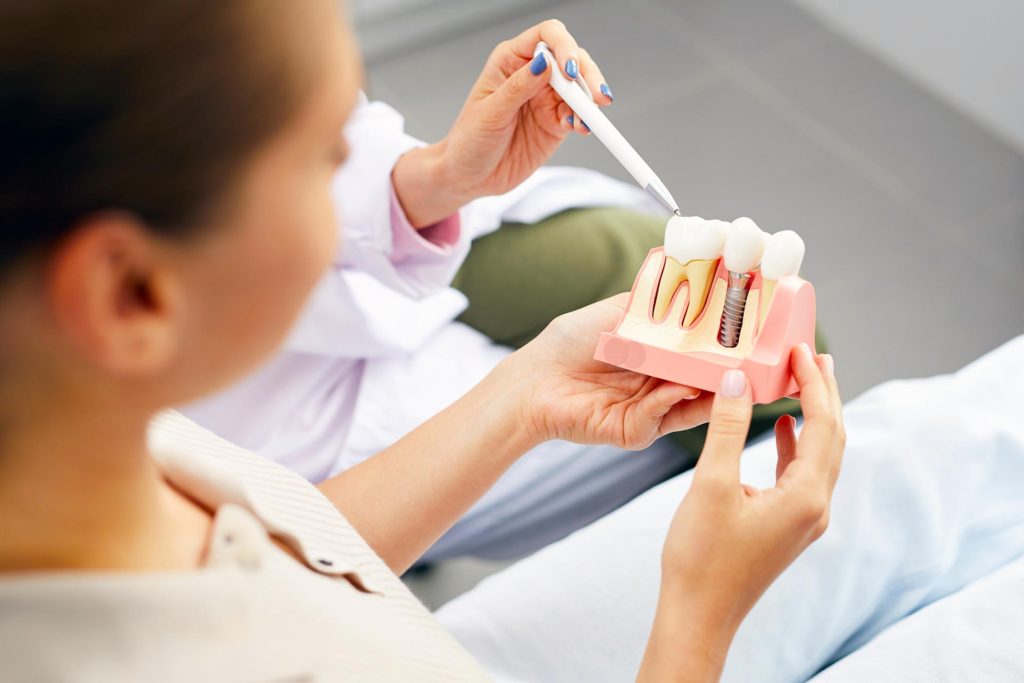
Gum disease is a more common dental problem than many people realize. It is a silent infection of the gums that can develop without your awareness. Some signs may include bleeding, redness, swelling, and gum sensitivity. The main cause is bacterial plaque, a sticky film that covers the teeth. However, certain medications, poor oral hygiene, and hormonal changes — especially during pregnancy, puberty, and menopause — can also trigger or influence the condition.
Patients with diabetes or undiagnosed diabetes have a higher risk of developing secondary or aggressive periodontitis. Smokers are also at significantly higher risk. In fact, smoking doubles the likelihood of gum disease and slows down the healing process.
Gingivitis
Gum disease has several stages, and the first stage is called gingivitis. At this stage, the condition can be controlled with daily oral hygiene habits such as brushing, flossing, and improving diet. Regular dental checkups not only help prevent disease progression but also allow early detection.
Periodontitis
The second, more advanced stage is called periodontitis. At this stage, the disease can cause soft tissue loss, and in later stages, tooth loss, as inflammation damages the tissues between the tooth root and the surrounding bone. It is common for patients to seek treatment when symptoms or pain appear, often confusing it with toothache, even though it is related to gum disease. This advanced stage may develop slowly, but can also worsen rapidly.
Aggressive Periodontitis
Aggressive periodontitis can develop quickly, beyond the usual stages of gum disease. While more common in adults aged 30–35, it can also affect prepubescent children and young adults. For this reason, children from families with a genetic predisposition to periodontal disease should be monitored carefully.
Aggressive periodontitis can cause severe bone damage, making it difficult for the patient to receive treatments such as implants, dentures, or similar procedures in the future.
How to Protect Your Gums and Teeth
Monitoring the health of gums and teeth from an early age, visiting the dentist regularly, brushing and flossing daily, and following a healthy diet can prevent — and in some cases even reverse — the effects of gum disease. Early diagnosis and treatment help minimize the risk of tooth loss associated with advanced stages of the disease.





